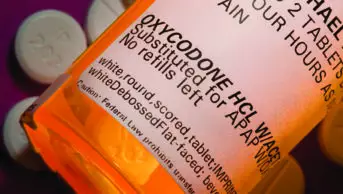
Shutterstock.com
Researchers have identified six high-risk medicines or combinations of high-risk medicines that should be targeted in medicines reviews to reduce iatrogenic disease in older people.
The research[1]
also shows that when GPs choose not to act on pharmacists’ recommendations to stop high-risk medicines, patients are more likely to suffer an adverse outcome.
The researchers, led by Clare Morrison, lead pharmacist north at NHS Highland, say the list of high-risk drug combinations will be invaluable to pharmacists who are under pressure and want to get the most out of medicines reviews for patients aged over 60 years.
“We are a small team and wanted to see where to target our resources,” says Morrison. “This list is hugely significant and is not sector-specific.”
The researchers recommend that pharmacists use the list as a prompt during medicines reviews. “If you see a patient on any of these high-risk medicines, or combination of medicines, you should check whether it is safe.”
The list (see ‘Six key high-risk medicines to target in regular medication reviews’) includes the well-documented “triple whammy” combination — a non-steroid anti-inflammatory drug (NSAID), a diuretic and an angiotensin converting enzyme (ACE) inhibitor — and the use of an NSAID taken by a patient who has reduced renal function. It also includes hypnotics or benzodiazepines, tricyclic antidepressants and antipsychotic drugs prescribed for patients aged over 60 years. Also considered particularly high risk are NSAIDs taken by patients aged over 75 years who are not prescribed a proton pump inhibitor (PPI).
The researchers compiled the list as part of their analysis of the impact of medicines reviews by pharmacists and the treatment of patients with iatrogenic disease in 16 practices in NHS Highland.
The authors identified 3,643 patients who had been prescribed a high-risk medicine, identified from the health board’s polypharmacy guidance. They found 440 cases in which a pharmacist had carried out a medicines review and recommended to a GP that the patient’s medicine be stopped or amended. In 214 of the cases, the GPs acted on the advice — an acceptance rate of 49%.
But the researchers discovered that in the 226 cases where GPs rejected the pharmacist’s recommendation, 22 adverse events were recorded within a year of the advice being given. Of these 22 adverse events, three resulted in hospital admissions and 19 led to a further GP consultation. The researchers argue that 21 of the incidents would have been avoided if the pharmacist’s advice had been heeded.
Writing in Drugs — Real World Outcomes, the researchers conclude: “This study demonstrated that medication reviews for high-risk medicines are safe and effective, and that pharmacists are effective at delivering medication reviews. It identified six high-risk medicines that could form the basis of targeted medication reviews in order to reduce iatrogenic disease.”
Commenting on the research, Tobias Dreischulte, research pharmacist at the Tayside Medicines Unit, NHS Tayside, Dundee, says the study adds to previous evidence that pharmacist-led medication review of patients with high-risk prescribing can improve prescribing safety.
“It suggests that such reviews may prevent adverse drug events but also highlights that stopping high-risk prescribing may be associated with a loss in symptom control,” he says. “The clinical implications of medication changes (both benefits and risks) and the cost-effectiveness of review require confirmation in a randomised controlled trial with blinded or objective outcome assessment.”
Dreischulte noted that the study found that approximately 10% of general practice populations are affected by high-risk prescribing, which has previously been shown to account for a large proportion of preventable drug related hospital admissions.
| Six key high-risk medicines to target in regular medication reviews | |
|---|---|
| High-risk medicines | Suggested Action |
| Triple whammy combination (NSAID, diuretic, ACE inhibitor) | Stop NSAID |
| NSAID + reduced renal function | Stop NSAID |
| NSAID + age>75 + no PPI | Stop NSAID or add PPI |
| Hypnotic/benzodiazepine + age>60 | Reduce or stop hypnotic/benzodiazepine |
| Tricyclic antidepressant + age>60 | Reduce or stop tricyclic antidepressant |
| Antipsychotic + age>60 | Reduce or stop antipsychotic |
References
[1] Morrison C & MacRae Y. Promoting safer use of high-risk pharmacotherapy: impact of pharmacist-led targeted medication reviews. Drugs — Real World Outcomes 2015. doi:10.1007/s40801-015-0031-8.


